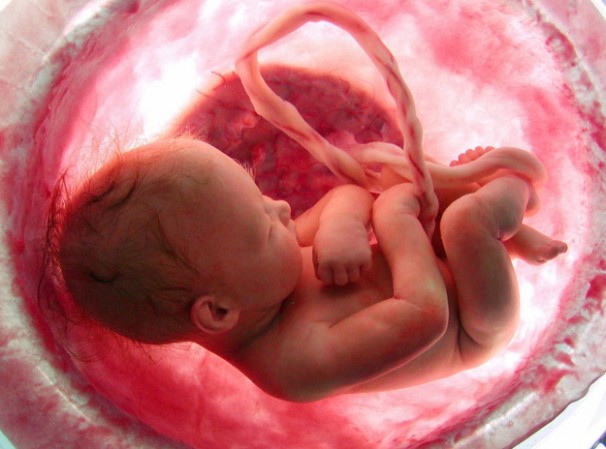Another top university is embroiled in the scandal enveloped the Planned Parenthood abortion business, which was caught selling the body parts of aborted babies for potentially illegal profits.
Now, not only has Indiana University been found to be involved in the grisly body parts trade but it is suing state officials to be able to continue it.
Indiana University is suing the state of Indiana in order to continue experiments using parts from aborted babies, including the brains of aborted babies purchased for $200 each. Today, Indiana Right to Life informed LifeNews.com that it has confirmed Indiana University purchased brains from the Department of Pediatrics at the University of Washington.
Indiana University is suing over a portion of the 2016 Dignity for the Unborn law, which prohibits the transfer and sale of aborted baby parts. Indiana University claims in its lawsuit that the law will jeopardize its research.
Indiana Right to Life opposes using aborted baby body parts for research, citing this practice as unethical and unnecessary. Scientists are working on cures for diseases with ethical avenues like adults stem cells and umbilical cord blood, the pro-life group says.
“Each aborted baby’s brain being dissected by Indiana University researchers belonged to a little boy or girl,” said Mike Fichter, President and CEO of Indiana Right to Life. “We’re sickened that a price tag of $200 was put on the brain of a deceased child whose life was ended in the barbaric practice of abortion. We urge the Indiana University Board of Trustees to step up and put a stop to the experiments on aborted babies.”
Indiana Right to Life is sponsoring a petition to the Indiana University Board of Trustees that calls for an end to the experiments on aborted babied. All Hoosiers, especially Indiana University alumni, are encouraged to sign on.
View the invoice containing Indiana University’s purchase of brains here.
Indiana University filed suit against the new law earlier this year.
The new law will help stop the kind of sale of aborted babies and their body parts that Planned Parenthood facilities in other states have been caught arranging. Although Roe v. Wade prohibits states from completely banning abortions, pro-life advocates in Indiana believe the aborted baby ought to at least be treated respectfully even if the abortion clinic treated the baby with disrespect before the abortion.
The new legislation, passed in March, requires that aborted babies’ bodies be cremated or buried. It strengthens a law passed in 2015 and signed by Gov. Mike Pence requiring that aborted babies’ bodies be disposed of in a humane way. State law also prohibits the transfer and sale of aborted baby body parts.
Indiana University researchers argue in their lawsuit that these new measures will jeopardize their research and stifle their academic freedom, the Indy Star reports. The lawsuit claims the effects on scientific research could be “dramatic” and catastrophic.”
Keep up with the latest pro-life news and information on Twitter. Follow @LifeNewsHQ
However, Mike Fichter, President and CEO of Indiana Right to Life, said researchers have access to multiple alternative tissue sources that do not involve taking the life of an unborn child.
“We believe aborted babies’ bodies should be treated humanely and with respect,” Fichter said in a statement. “Indiana University’s admittance to using parts from aborted babies for their research also raises concerns about whether or not the pregnant women gave their informed consent for their babies’ bodies to be used in research.”
Dr. David Prentice, Vice President and Research Director for the Charlotte Lozier Institute, said the Indiana University lawsuit does not contain any proof that aborted babies’ body parts are necessary for scientific research.
“Their complaint makes vague statements about the need for the research, as well as the oft-cited but unproven claim that they will not be able to hire research faculty if the prohibition remains in effect,” Prentice said. “However, their claims lack any substantive proofs that the research use of aborted fetal tissue is critical or unique.”
A number of scientific researchers also have publicly stated that aborted babies’ body parts are not essential to medical advancements.
In an op-ed in the Milwaukee Wisconsin Journal Sentinel last September, six doctors explained why using fetal “tissue” for research is unethical and unnecessary for scientists.
“The argument that fetal-derived tissues must be used in research to develop medical treatments is false,” they wrote. “Many therapies have been developed using cell lines not of fetal origin, including insulin for diabetes (produced in bacteria), Herceptin for breast cancer and tissue plasminogen activator for heart attack, stroke and pulmonary embolism (both developed in Chinese hamster ovary cells).”
The Indiana law also is facing a challenge from Planned Parenthood. In April, the abortion business filed a lawsuit against the new law, which also bans abortions solely because of an unborn baby’s genetic disability, race or sex, LifeNews reported.








